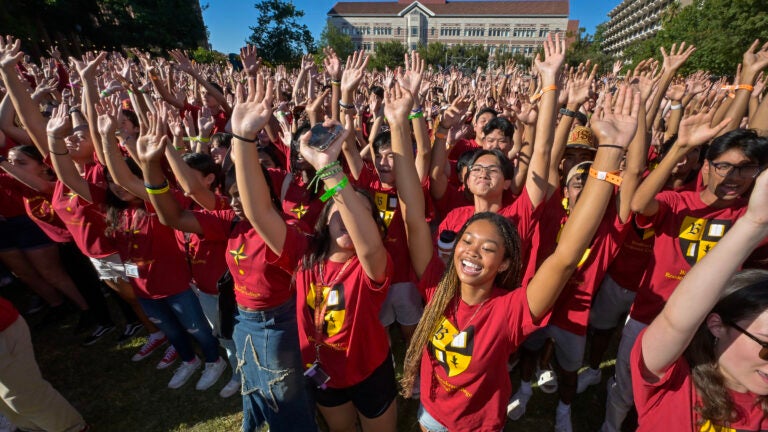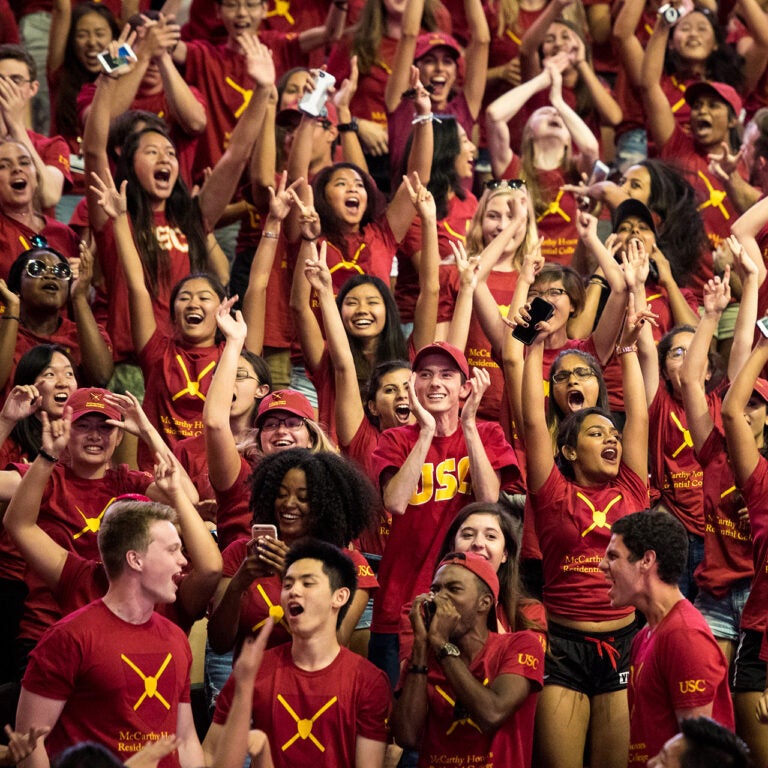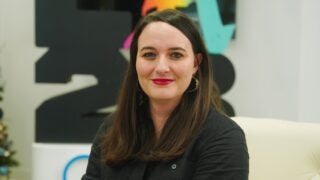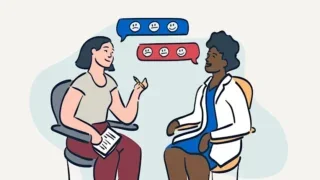Can we prevent Alzheimer’s disease within a decade?
USC researchers are on the cusp of a revolution in Alzheimer’s prevention. In the near future, their discoveries promise to make the devastating disease a thing of the past.
(Illustration/Bratislav Milenkovic)
Top Headlines
The six-student team is helping with outreach, social media and student-facing programs for the project.
USC researchers may have discovered a way to break through the blood-brain barrier and make immune checkpoint inhibitors effective for patients with recurrent, high-grade astrocytoma.
The law professor and legal analyst visited USC’s University Park Campus to discuss his latest book, Rage and the Republic.
BLACK HISTORY MONTH: Trojan Cyan Shreve and longtime USC employee Lori Shreve Blake are both descendants of trailblazing abolitionist and activist Mary Ann Shadd Cary.
Inaugural Arts + Health Symposium Highlights the Power of Art to Heal, Inspire and Support Well-being
USC scientists and artists — along with creative staff of The Pitt — shared groundbreaking interdisciplinary collaborations at the intersection of creativity and health care.


Fighting On to Victory
USC is home to top performers in the classroom and on the athletic field as well. Our teams have won 138 national championships — 100 men’s (including a national-best 87 NCAA titles) and 38 women’s titles. And Trojans have captured a gold medal in each Summer Olympics since 1912 — a run that’s sure to continue when the Games return to Los Angeles in 2028.
USC’s Athletic Tradition
The most Heisman Trophy winners. The most Olympic gold medals and the overall medals. The most NCAA men’s individual titles. USC student-athletes set the standard.
Getting ready for the Games: Week of panels focuses on engineering a successful L.A. Olympics
All this week, the USC Sonny Astani Department of Civil & Environmental Engineering is bringing together researchers, civic leaders and student innovators with LA28 on their minds.
Stronger Than Hate: Trojan student-athletes recall life-altering trips to historic sites
USC Shoah Foundation and the Big Ten Conference provide Trojans with the opportunity to visit historical sites of the Holocaust and the Civil Rights Movement.
USC student-athletes set another record for academic performance
Every USC team finished the fall 2025 semester with a GPA above 3.0.
Women’s golf team takes a high-tech approach to success
With state-of-the-art putting greens and driving ranges, high-tech simulators give Trojans a complete overview of their game.
Championship Mindset
Across USC Athletics, preparation meets performance. From national honors and record-setting moments to breakthrough performances, these highlights capture Trojan excellence.

Spotlight: USC Chan Division of Occupational Science and Occupational Therapy
As a global leader in occupational science and occupational therapy, the USC Mrs. T.H. Chan Division of Occupational Science and Occupational Therapy prepares clinicians, scholars and innovators to enhance health, participation and quality of life across the lifespan. Home to top-ranked degree programs and expert faculty who integrate rigorous scholarship with real-world practice, the division leverages the health-promoting power of everyday occupations to drive translational impact in communities, clinical settings and global health.
Turning Education Into Opportunity, Action and Impact
The “We Are Here” series showcases the Big Ten Academic Alliance, with USC among its member universities, featuring students and alumni who share how learning becomes action, launching careers, creating jobs, saving lives, advancing innovation and serving neighborhoods nationwide.














